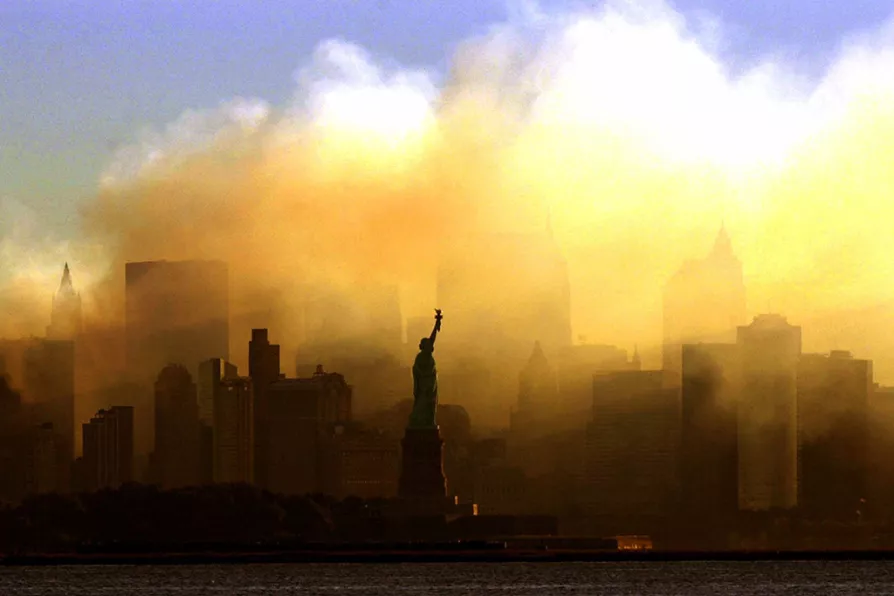Once the bustling heart of Christian pilgrimage, Bethlehem now faces shuttered hotels, empty streets and a shrinking Christian community, while Israel’s assault on Gaza and the tightening grip of occupation destroy hopes of peace at the birthplace of Christ, writes Father GEOFF BOTTOMS


TOMORROW is the 20th anniversary of the September 11 attack on the Twin Towers. We will be hearing a lot about the horrors of that day, when 2,977 people were killed because 19 terrorists flew planes into buildings.
It’s also 20 years since the US government decided to respond to the attacks by lashing out with a series of wild military adventures: US Secretary of Defence Donald Rumsfeld planned to “go massive” and attack targets he knew were completely unrelated to the terrorists — including Iraq — on the day the Twin Towers fell. Hundreds of thousands of people have died because the US government — with British support — decided to use the event to demonstrate Western military might, instead of seeking justice.
We know how Rumsfeld reacted to the fall of the Twin Towers because we have access to the handwritten notes of his orders on September 11 2001. The notes were kept by Rumsfeld’s aide Stephen Cambone, who wrote down his orders to his various officials. According to these notes, on the afternoon of September 11, about five hours after the first plane hit the Twin Towers, Rumsfeld said, “Near term target needs — go massive — sweep it all up, things related and not.”
![SHAMELESS DISPLAY OF COERCION: Previously unreleased photos of Guantanamo captives, 2002, brought to Guantanamo Bay from Afghanistan by way of Incirlik, Turkey. [Pic: Staff Sergeant Jeremy Lock/CC]]( https://dev.morningstaronline.co.uk/sites/default/files/styles/low_resolution/public/2025-11/cia%20web2.jpg.webp?itok=SyFt0Pzt)
GUILLERMO THOMAS enjoys a survey of the current state of the CIA (aka Langley) from an expert and insider of sorts

ANDREW MURRAY looks back on the ignominious career of the former US vice-president, who died earlier this week

SOLOMON HUGHES highlights a 1995 Sunday Times story about the disappearance of ‘defecting Iraqi nuclear scientist.’ Even though the story was debunked, it was widely repeated across the mainstream press, creating the false – and deadly – narrative of Iraqi WMD that eventually led to war












